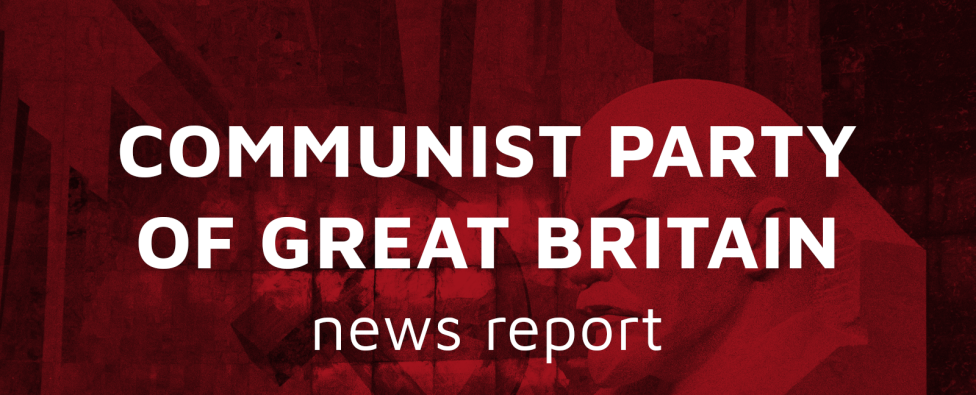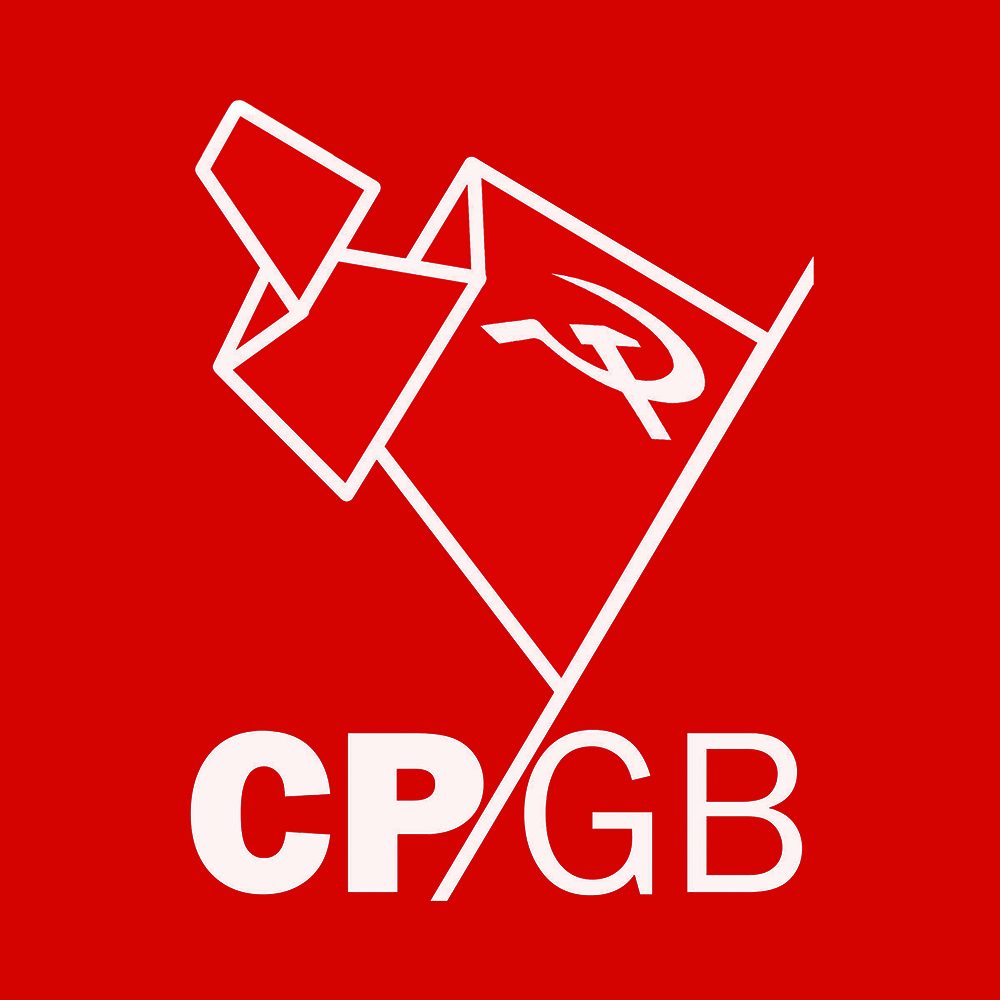
Report on discussions on the results of the Batley and Spen by-election as well as tweaks to the Draft Programme. This report was originally published in WW1355, which can be found here
Politics not as usual
Comrades from the CPGB and Labour Party Marxists, along with invited guests, met online on Saturday July 3 to discuss perspectives for Labour and the left following the Batley and Spen by-election, and consider some amendments to the CPGB’s programme on nature and the environment.
The session on Labour was opened by James Harvey of the CPGB’s Provisional Central Committee. He began by surveying the media coverage of the by-election, and the mixture of relief and surprise felt by the Starmer leadership at Labour’s close win. Comrade Harvey stressed that we are in an unusual political moment, when there is an expectation that the main opposition party will fail to defeat a government in mid-term and not retain a seat Labour has held since 1997. He outlined the factors favouring the Johnson government, such as the ‘vaccine bounce’ and the continuing impact of Brexit on electoral politics, although he also pointed out that the circumstances surrounding the resignation of Matt Hancock as secretary of state for health had an effect on the Tory vote.
The main focus of the opening was on Labour and the breathing space that Keir Starmer was said to have gained as a result of the by-election victory. For weeks rumours had circulated that in the event of a defeat at Batley and Spen, Starmer would face a leadership challenge from the likes of Angela Rayner, Yvette Cooper and Andy Burnham, but this ‘existential threat’ to the Starmer leadership has receded, for the time being at least, and Starmer is now free to continue with his electoral project and strengthening Labour’s historical function as the reliable second eleven of British capitalism. What particular form this will take remains uncertain, although things may become clearer by the time of the Labour conference in September after a summer of new policy outlines and ‘engaging with the electorate’. As Starmer continues Labour’s move to the right, he might breathe new life into Tony Blair’s ‘delabourisation’ strategy and break the party’s links with the trade unions, or further intensify the witch-hunt against the left, comrade Harvey suggested.
The response of Labour’s official left, such as the Socialist Campaign Group of MPs, to these developments revealed fundamental weaknesses and strategic failures. Comrade Harvey argued that the whole focus of the official left was on the election of a Labour government, and that these essentially electoralist politics tied them symbiotically to the Labour right and thus bound them to maintain Labour as a bourgeois workers’ party. Broadening his argument, he said that this approach also typified many on the Labour left beyond parliament in groups such as the Labour Representation Committee and the Labour Left Alliance. The failure of the Corbyn project had disorientated and demoralised them, with many drifting away from party membership or moving into purely protest politics and street demonstrations, whilst others were flirting with alternative left projects outside Labour, such as George Galloway’s Workers Party of Britain or the Trade Unionist and Socialist Coalition.
Comrade Harvey concluded by stressing that both of these responses represented a dead end for the left, before going on to reiterate the CPGB’s central aim of building a mass Communist Party, combined with a serious strategic orientation towards Labour – which means we campaign for ending bans and prescriptions, and the consequent refounding of Labour as a united front of a special kind, open to all working class and socialist organisations.
Debate
In the subsequent discussion comrades took up these arguments and drew on their own experiences of the politics of the Labour left. Mike Macnair talked about the continued importance of campaigning around the demand for Labour to become a united front of a special kind, especially given the way that the mass radicalisation of the Corbyn period had produced little of substance and had only contributed to the further decline of the left. He attributed much of this to the ways in which the shadow of Stalinism continues to influence the labour movement, as seen in the influence of the Morning Star’s politics on the Labour left, the “people’s frontism” of the Socialist Workers’ Party and the politics of bureaucratic control, which breeds disillusion and disorientation.
Comrade Macnair located the current crisis of the left in what he saw as a fundamental turn in global politics as a result of the United States’ aggressive policy towards China and the ways in which this shift is framed ideologically as a clash of civilisations – or a struggle between ‘democracy’ and ‘authoritarianism’. This turn has also seen a political and cultural reaction against liberalism, which is not confined to the far right. He cited Galloway’s social conservatism and the politics of some Lexiteers as symptoms of this trend, and how the left – many of whom are genetically rooted in the civil rights and anti-discriminatory politics of the 1960s-80s – are unsure how to respond to these threats of nationalism, war and traditionalism.
The uncertainties of our times were also considered by Jack Conrad. In a wide-ranging contribution he talked about the continued impact of Brexit on politics and the bankruptcy of Labourism, exemplified by Starmer’s pathetic search for an electorally appealing ‘big idea’. Comrade Conrad reviewed the current state of the left and the impact of the experience of the Corbyn movement on its politics. He was glad to be surprised by the size of the vote for Galloway in the by-election, but did not think the WPB would become an electoral force nationally.
For Jack, the contemporary left was characterised by a lack of theory, programme and historical memory, which produced either superficial outrage or moralistic appeals. The inability of the Corbyn movement to challenge the Labour right’s grip on the party machine and its failure to deselect any MPs were illustrations of this pattern and the historic decline of the cadre of the left. Recent developments amongst the Chatham House left simply pointed up these continuing weaknesses and the complete disorientation of the contemporary Labour left. He argued that, although it was an unpromising picture, communists should continue to fight for revolutionary politics in groups like the LLA: it was better, comrade Conrad said, to be up close rather than state our case from an Olympian height. By taking part in the debates and discussions within the Labour left, we can learn and understand more about their politics, and hopefully some of them will learn from us, he concluded.
Other comrades offered their experiences of the Labour left. Bernard Mattson described how the many left comrades shaped their politics as nostalgia: ‘We want our Labour Party back!’ was how it was framed, he said. However, comrade Mattson questioned how useful this approach was because in essence it simply meant that even the best Labour left activists were going around in political circles, unable to go beyond repeating the failed politics of Corbynism and continuing to bind themselves to Labourism. Ollie Hughes agreed, especially in relation to the Labour left’s demand for Starmer to resign. Who do you put in his place, he asked? Where is the Labour left’s strategy to transform the party and develop real, independent, working class politics? All he could see was confusion and incoherence.
Another important strand in the discussion was the significance of George Galloway’s vote at Batley and Spen. Comrade Farzad Kamangar said we should not read too much into the Galloway vote, as it seemed impossible for this specific electoral configuration to be repeated throughout the country. The left was always looking for short cuts to socialism, she argued, whether by giving uncritical support to Jeremy Corbyn or by seeing the growing power of China as a counterweight to American imperialism. As far as the Labour left is concerned, comrade Kamangar suggested that we faced a catch 22 situation: until we are stronger, we cannot influence these currents, but if we focus unduly on the Labour left and do not put work into establishing a Communist Party, we will not be able to intervene effectively in any arena. Building a Communist Party must remain our central, strategic aim and other work must necessarily be subordinate to that.
Andrew Kirkland of LPM said that Galloway’s base in the by-election consisted of two antagonistic sets of voters: namely Muslims and so-called white working class Brexiteers. This was not a sustainable coalition nor was it wide enough to pose a significant electoral threat nationally. He argued that some supporters of the Labour left believed the party was on the eve of a serous split en route to its terminal decline or Pasokification, from which would emerge a new trade union-based party. To these comrades this would be a positive development and would open up new opportunities for the left. However, for comrade Kirkland the opposite would be true: such a new party would simply be a Labour Party mark two, which was the last thing we needed!
Programme
The second issue considered by the aggregate was the CPGB’s Draft programme, and in particular amendments to the sections dealing with nature and the environment. Opening the discussion, Jack Conrad of the PCC began by describing the current evidence about the impact that human beings have had on climate change. He cited the examples of the recent heatwaves in the United States, Canada and, above all, Pakistan, along with new research about the impact of rising sea levels on countries such as Bangladesh.
November’s Cop26 climate change conference in Glasgow will be an occasion for pious speeches and demonstrations by the left. But whatever governments promise to do, none of them will challenge the productionist logic of capitalism – a society predicated on expansion to realise surplus value. The dynamic and logic of capitalism – “accumulation for accumulation’s sake” – will continue to dominate. Given the global nature of the problem, ‘national’ targets, and ‘solutions’ instituted by individual and inevitably antagonistic states, are no way to deal with these serious issues. We should not trust capitalist governments to successfully deal with the issue, although, comrade Conrad believed, the current Covid crisis showed that we should not rule out the possibility of the state acting decisively in the ‘wider social interest’ if required.
The basic issue was that climate change is linked to the nature of capitalism: we need a force that shifts ‘production for production’s sake’ to a system of production to meet our needs. Human beings and their needs are at the centre of our programme, and this, rather than ‘green utopianism’, informs our specific demands about nature and the environment. The demands in the programme are being tweaked, not fundamentally revised, and are clearly linked to the need for the working class globally to become the ruling class, comrade Conrad concluded.
After a useful discussion we had a unanimous vote in favour of two programmatic amendments.
Note: You can find records of previous passed motions, resolutions, theses, and changes to the Draft Programme on our Theses & Resolutions page
